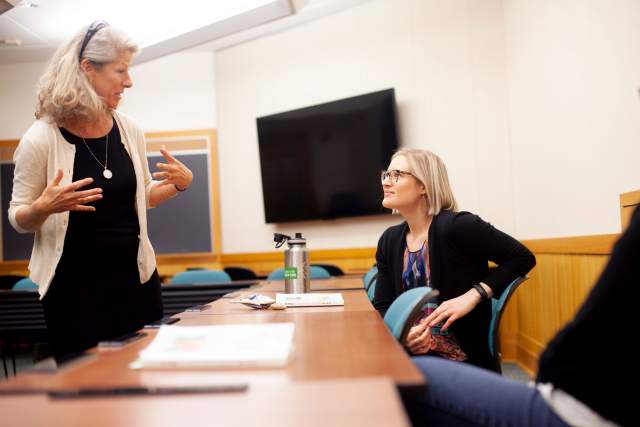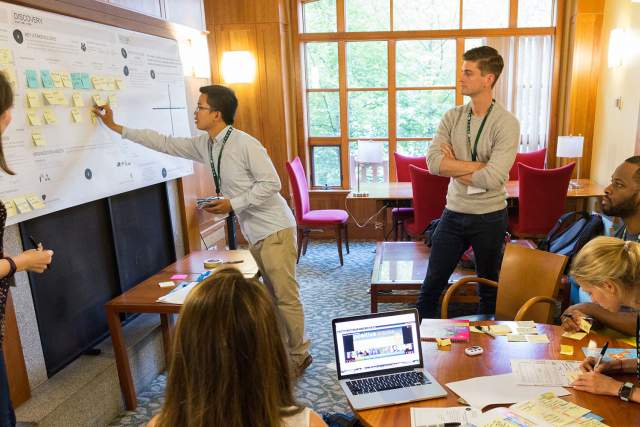Dean and Del Campo have begun a number of initiatives to satisfy that demand. With the idea of “One Dartmouth” in mind, they are strengthening the connections between the real estate clubs at Tuck and Dartmouth. For example, Dartmouth students attended a recent real estate master class with Tuck professor Brian Melzer, and an on-campus company briefing with Beacon Capital. Members of the Tuck real estate club are also mentoring Dartmouth students, helping them draft their résumés and prepare for interviews. In the next six months, the Tuck real estate club is planning more company briefings with The Blackstone Group and Cambridge Associates. The club will also continue to offer its real estate treks and site visits, to give students a close-up view of companies and projects. The most recent example took place in May, when Colla hosted a group of Tuck and Dartmouth students at his construction site in downtown Hanover. In the coming weeks, a group is headed to Portsmouth, NH to visit Taylor McMaster T’18 and tour his luxury condo development.
We’re trying to make a lasting impact. We’re working hard to build the institutional knowledge so future classes can benefit.
Since real estate expertise often exists at private equity firms, the Center for Private Equity and Venture Capital is preparing to bring that sector into its programming. There will be a real estate panel at the Private Equity and Venture Capital Conference next year, and the Center is looking to add board members from the real estate industry. In addition, Dean and Del Campo would like to raise money to fund training sessions and internships. “We know a lot of smaller real estate developers and investors who can’t afford a Tuck student but would love to work with us,” Dean says. “Like the Maynard program [for internships in entrepreneurship and venture capital], we’d like to bridge that gap, and many alumni have expressed interest.” Looking further into the future, Dean and Del Campo would like Tuck to establish a student-run real estate investment fund for local projects, to give students real world experience in underwriting and due diligence.
To assist students with networking in the real estate industry, the real estate club is building a recruiting guide with a contact list of alumni from Dartmouth and Tuck, and it’s working with the Career Development Office to create a list of Tuck alumni who would hire interns.
Dean and Del Campo plan to remain connected to the club even after they graduate this year, growing the Tuck network in London and the Northeast. “We’re trying to make a lasting impact,” says Del Campo, “so we’re working hard to build the institutional knowledge so future classes can benefit.”

